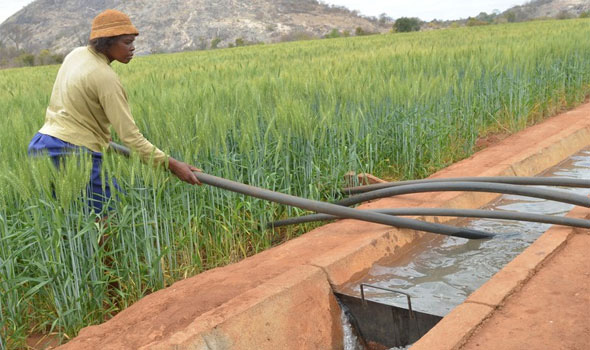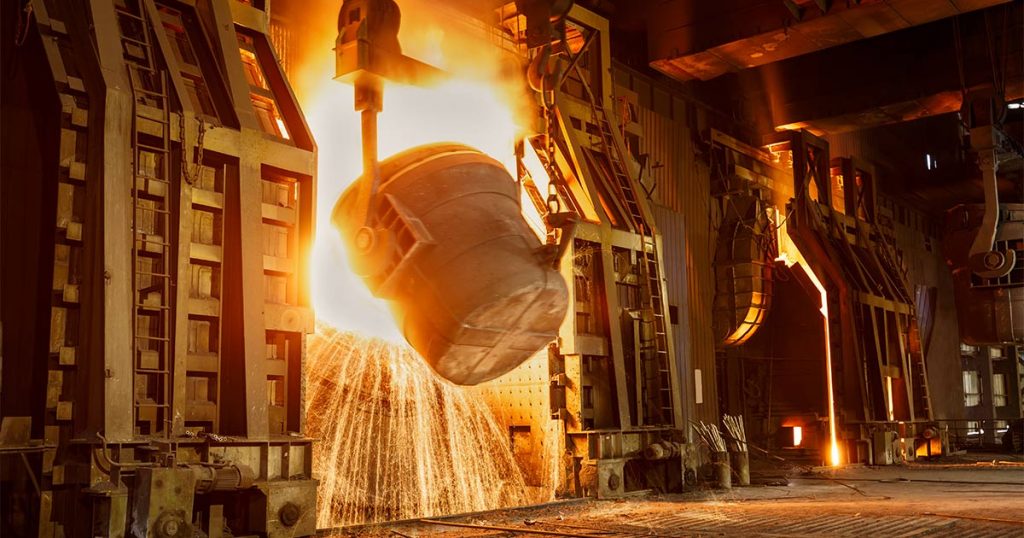‘Escalate economic development projects’
FORMER Reserve Bank of Zimbabwe (RBZ) monetary policy committee member, Mr Eddie Cross said it is imperative for the Second Republic to escalate economic development projects aimed at maintaining the growth trajectory in its second term.
Upon its inception in 2018, the Second Republic went on an economic development offensive that saw massive development on roads, infrastructural development, energy supply, dam construction, irrigation rehabilitation and other developmental projects meant to attain an upper middle-income economy by 2030.
President Mnangagwa
Following the landslide Zanu-PF victory in the just-ended harmonised elections, the business community says it expects the incoming Government to consolidate the gains achieved so far and further scale up the ease of doing business reforms.
President Mnangagwa retained the country’s presidency in the harmonised elections where he got 2 350 711 votes which translates to 52,6 percent of the vote beating his nearest challenger, CCC’s Nelson Chamisa who got 1 967 343 or 44 percent.
In the National Assembly Zanu-PF got 176 seats to the 103 of the CCC after the 60 proportional representation women’s seats were declared on Tuesday along with the 10 special youth seats.
After winning 136 of the 210 constituencies, Zanu-PF won 33 of the 60 proportional representation women’s seats and seven of the 10 youth seats while CCC won 73 constituency seats and then picked up 27 of the women’s seats and three youth seats.
Economists and captains of industry are of the view that the Second Republic first term created a conducive environment for businesses and economic development to thrive.
Going forward, the Government needs to prioritise consolidating pro-business policies to buttress the economic growth momentum by ensuring continued exchange rate stability, curtailing consumptive expenditure, revamping the taxation system and accelerate efforts to resolve external debt overhang.
Building on the positive growth trajectory achieved in the last five years, business leaders have noted the solid fundamentals as a critical building block for a strong economic base.
Mr Cross is of the view that President Mnangagwa’s incoming government should, among other issues, focus on stabilising the local currency, expanding the electricity generation base and escalating infrastructure projects.
“The main priorities are going to be maintaining the present growth trajectory, particularly in the industrial field, and agriculture as well as continuing the expansion of the mining industry,” said Mr Cross.
“There is also a need for stability of the currency. The pressure is on de-dollarisation in the next five years. We also have to tackle the issue of infrastructure which is key in driving the economy forward.
“We have to triple power production in the next seven years and we have to put our railway back and start our road infrastructure and attend to both urban and rural roads that are critical in servicing our economy,” said Mr Cross.
He said the Government should utilise the limited available resources to introduce very radical reforms in both the education and health sectors in order to continue improving standards and universal access.
Business Economic Empowerment Forum (BEEF) president, Dr Solomon Matsa said the new five-year mandate should give President Mnangagwa the chance to complete unfinished projects and initiate high-impact ones.
President Mnangagwa
Dr Matsa said the Second Republic has created a conducive environment for businesses to thrive presenting huge opportunities for investors.
“Being a businessman and successful farmer himself, President Mnangagwa has created a conducive environment for everyone who wants to make money to do so.
“As BEEF we feel motivated and encouraged that he has been given another term which gives him the opportunity to launch a new offensive on the economic front,” he said.
Young Miners Foundation (YMF) chief executive officer Mr Payne Kupfuwa said President Mnangagwa’s massive victory is “purely a win for small scale miners” as his policies are inclined towards the growth and the development of the sector.
“President Mnangagwa is keen to see the upgrade and upscale of our operations as small-scale miners to medium if not large-scale miners. His understanding and concern for the small-scale mining industry which saw him addressing the Mines and Minerals Act to suit the youths and women in mining shows that in his reign there is so much hope for potential growth and sustainability,” said Mr Kupfuwa.
Government under the leadership of President Mnangagwa launched a number of projects meant to ensure that Zimbabwe becomes food secure and reclaim its breadbasket status.
Despite being under sanctions, Zimbabwe managed to become wheat self-sufficient for the first time in years with a surplus expected to be exported.
In the 2022/2023 season, the country achieved a bumper harvest owing to climate-smart agriculture and other Government initiatives that promote the efficient use of resources and tackle the challenges associated with climate change.
The Government has accelerated construction of dams and intensified irrigation farming to reduce the effects of recurrent droughts.
It was worth noting that the agriculture sector, initially projected to grow by four percent in 2023, was now projected to grow by 9,7.-chronicle










